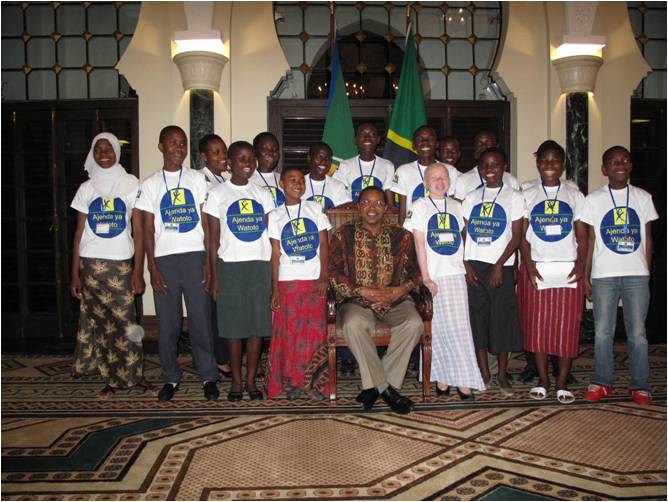About Us
COUNTRY INFORMATION AND STATISTICS
The United Republic of Tanzania is a union of Tanganyika (Tanzania Mainland) and Zanzibar (includes main Islands of Unguja and Pemba). Administratively, Tanzania has 30 regions (25 on the Mainland and 5 on Zanzibar). Dodoma is the capital City and Dar es Salaam is the major commercial and port City.
Tanzania currently has a total population of 49.6 million, with an annual growth rate of 3.0%. According to the latest national census of 2012, the average household size is 4.8 persons.
51% of the Tanzanian population is children with around six million aged 0 - 14 years living below poverty line and approximately 2.8 million children falling below the food poverty line Only 16% of Tanzanian children are currently registered at birth according to the 2010 Tanzania health and demographic survey. Moreover Registration of Urban births is almost four times higher (42%) than Rural (8%), which makes it difficult for the Government and Civil Societies to identify children in need and provide access to various services especially in the rural areas of Tanzania.
While children, especially the poorest ones in Tanzania, still face many challenges to their survival, development, best interests and participation, the Government of Tanzania has set an enabling child rights framework for achieving positive changes in children’s lives: passing comprehensive laws to deal with children: The Children’s Act by Tanzania Mainland in 2009 and in 2011 by Zanzibar representing clear commitment by the United Republic of Tanzania to provide for children’s rights. The Acts consolidate all the laws relating to children, promotion and protection of the welfare of a child. While the Constitution of Tanzania is still under review (2015), Save the Children is advocating, together with Children Councils and Tanzania Child Rights Network, to embed children’s rights that are proclaimed in various Policies such as the Child Development Policy, Health Policy, Employment Policy and National Nutrition Strategy among others into the new Constitution.
Tanzania has embraced the MDGs within its national Poverty Monitoring System since 2001 and has made considerable progress in achieving their targets in Primary school net enrolment, equity in access to primary education, access to safe water and reduction in child mortality. However, despite important progress, efforts need to be accelerated to reduce maternal and newborn mortality, malnutrition in children, early marriages and increase children involvement and protect their rights so as to achieve greater gender equality and to reduce poverty, in line with the Big Results Now Initiatives.

Tanzania has embraced the MDGs within its national Poverty Monitoring System since 2001 and has made considerable progress in achieving them. Targets in Primary school net enrolment, equity in access to primary education, access to safe water and reduction in child mortality have already been met or are now on track to be met by 2015. Despite important progress, efforts need to be accelerated to reduce maternal mortality, to halt and reverse the spread of HIV/AIDS, to achieve greater gender equality and to cut extreme poverty by half.
 Tanzania
Tanzania